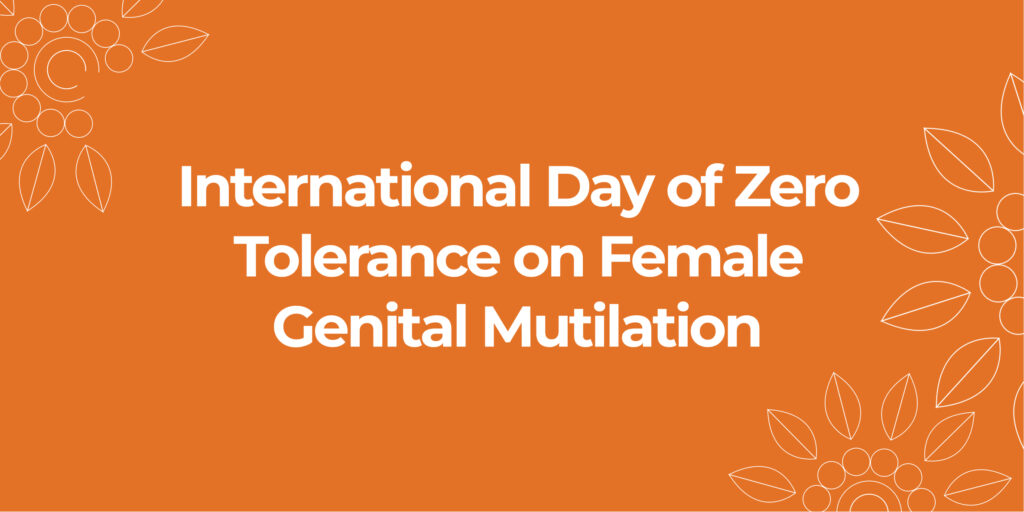On this International Day of Zero Tolerance for Female Genital Mutilation (FGM), the Resource Centre for Human Rights and Civic Education (CHRICED), reaffirms its unwavering commitment to the eradication of this harmful practice across Nigeria and the broader African continent. FGM is not merely a cultural issue; it is a profound violation of human rights that inflicts severe physical and psychological harm on countless women and girls. The repercussions of FGM extend far beyond the immediate physical injuries, leading to long-term health complications, emotional trauma, and social stigmatization that can hinder the affected individuals’ ability to lead fulfilling lives.
In Nigeria, the fight against FGM is bolstered by the nation’s commitment to international standards, particularly the United Nations Resolution aimed at the elimination of this practice. The Nigerian government has taken significant steps to address this issue through the enactment of progressive legislation. One notable piece of legislation is the Violence Against Persons Prohibition Act of 2015, which explicitly criminalizes all forms of violence, including the practice of FGM on minors. This law represents a critical step forward in protecting the rights and well-being of vulnerable populations.
Additionally, the National Gender Policy serves as a framework for promoting gender equality and safeguarding the rights of women and girls. It explicitly prohibits FGM and other harmful traditional practices that target women and girls, reflecting a broader commitment to fostering an environment where all individuals can thrive free from violence and discrimination.
However, recent reports from the Nigeria Demographic and Health Survey reveals that about 20% of women aged 15 to 49 have experienced FGM. According to UNICEF, Nigeria accounts for the third highest number of women and girls who have undergone FGM worldwide. In certain regions, the practice remains deeply entrenched in community traditions, leaving many young girls vulnerable. Across Africa, the scale of the problem is even larger, with over 200 million women and girls affected by FGM and nearly 3 million girls at risk each year. These figures remind us that behind every statistic lies a story of pain and lost potential.
CHRICED is deeply concerned about the health consequences of FGM as outlined in several policy documentations which are not limited to immediate complications such as severe bleeding, pain, shock, tetanus and other infections and complications during childbirth (affecting both the mother and the child). In the long-term, sexual and reproductive health may be adversely affected including gynaecological problems such Introduction as fistula, increased need for subsequent surgeries, emotional suffering, and lack of sexual enjoyment. Sexual and reproductive health challenges also include “complications during childbirth, anaemia, the formation of cysts and abscesses, keloid scar formation, damage to the urethra resulting in urinary incontinence, dyspareunia (painful sexual intercourse), sexual dysfunction, hypersensitivity of the genital area and increased risk of HIV transmission.
CHRICED recognizes that the eradication of FGM requires a multifaceted approach that includes education, community engagement, and the empowerment of women and girls. It is essential to raise awareness about the dangers of FGM and to challenge the cultural norms that perpetuate this practice. By working collaboratively with communities, stakeholders, and policymakers, we can create a future where women and girls are protected from harm and can enjoy their rights fully.
At CHRICED, our mission is to empower communities and safeguard the rights, health, and dignity of every woman and girl. By collaborating with government agencies, non-governmental organizations, and local influencers, we are steadily building a future where FGM is no longer tolerated. The progress we have witnessed, from communities rejecting the practice to traditional leaders embracing alternative rites of passage, demonstrates that change is indeed possible when we work together.
As we observe this important day, CHRICED calls on all stakeholders, policymakers, community leaders, healthcare professionals, and every concerned citizen, to join us in the fight against FGM. This should form priority in every conversation, every community meeting, and every act of advocacy, until our efforts bring us closer to a Nigeria and Africa where every girl can grow up free from the threat of FGM, confident in her right to a healthy, dignified life.
We call on both the National and State Houses of Assembly to promote the implementation/ enforcement of existing laws and the adoption of legal frameworks in states where such do not currently exist, towards the elimination of FGM, this is in line with the National Action Plan Against Female Genital Mutilation 2021-2025.
We remain determined to work with other CSOs and health medical practitioners to expand our outreach, deepen our community engagement, and strengthen our support systems for survivors. Together, we can create a future where every woman and girl have the opportunity to thrive without the shadow of FGM looming over her life. Let us stand united on this International Day of Zero Tolerance on FGM as we work towards a world where every woman and girl is safe, respected, and empowered.
Falilat Adamu
Gender and Social Inclusion Officer
Resource Centre for Human Rights and Civic Education (CHRICED),
FCT, Abuja

